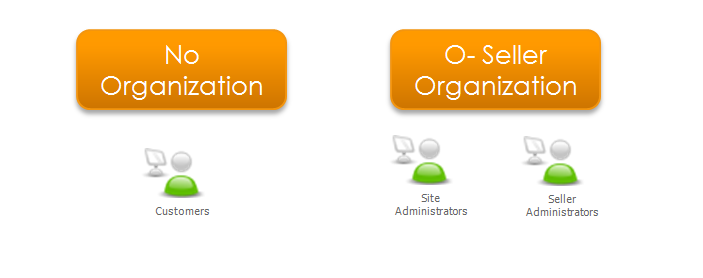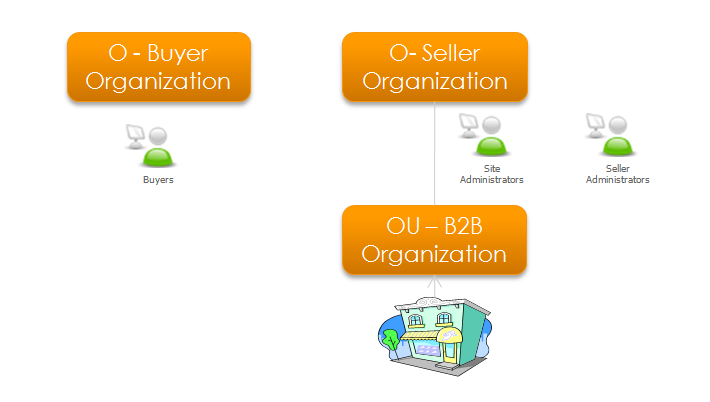Organization models
Describes how to work with categorization of organizations in the Customer Management system in Optimizely Commerce Connect 13.
You can categorize organizations into types, such as Organization or Organization Unit (like regional branches and departments) or business categories, such as Computers and Electronics or Clothing and Accessories.
You can use organizations to group user permissions and limit access to Optimizely Commerce Connect subsystems. For information about permissions and organizations, see Authorization and authentication.
Business-to-consumer (B2C) organizational model

Seller organization
A seller organization is created to own all the catalogs (Retailer) and the administrators who maintain the store. The administrators who maintain the store's functions (for example customer service representatives, catalog and product managers) are termed Seller administrators and are owned directly by the Seller organization.
Business-to-business (B2B) organizational model

Buyer organization
Customers, known in B2B direct businesses as "buyers", are represented by a buyer organization in the B2B organization structure. Users who belong to buyer organizations must register under their respective organization.
Seller organization
A seller organization is created to own the organizations that own catalogs. The administrators who maintain the store's functions (such as customer service representatives, catalog and product managers) are termed seller administrators and belong directly to the seller organization. A child organizational unit (OU), B2B organization, is created under the seller organization to own the store (Business).
Updated 4 months ago